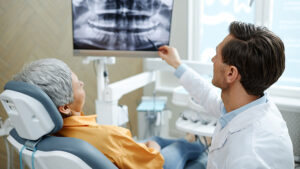Ameritas Insights
FEATURED CONTENT
How to Get Employees to Visit Network Dental Providers
December 1, 2025
| 3 min read
3 min read
Rethinking Your Retirement Strategy: What is an Indexed Annuity?
November 25, 2025
| 6 min read
6 min read
October 22, 2025
| 9 min read
9 min read
Insights for Life
Life Insurance Planning: The Difference 20 Years Makes
January 5, 2026
| 7 min read
7 min read
How Does an Annuity Work for Retirement?
January 5, 2026
| 7 min read
7 min read
Permanent Versus Term Life Insurance Explained
October 24, 2025
| 6 min read
6 min read
Insights for Wealth
Three New Year’s Retirement Resolutions for Your Plan
January 8, 2026
| 6 min read
6 min read
Why Reviewing Personal Finances Matters
December 12, 2025
| 5 min read
5 min read
How to Maximize Your 401(k) Employer Match
November 14, 2025
| 7 min read
7 min read
Insights for Health
How to Reduce Coffee Stains on Teeth
November 25, 2025
| 6 min read
6 min read
Healthy Teeth Start with Choosing the Right Dentist
October 27, 2025
| 9 min read
9 min read
How Dental and Vision Benefits Protect Your Business
September 11, 2025
| 4 min read
4 min read
Insights for Business
The Business Benefits of Good Customer Service
October 30, 2025
| 8 min read
8 min read
Helping Employees Embrace Change and Build Resilience
October 21, 2025
| 8 min read
8 min read
Supporting Remote Workers with Smart Benefits
October 1, 2025
| 11 min read
11 min read
Latest from the Newsroom
Nebraska nonprofits to receive over a million dollars from…
December 17, 2025
| 5 min read
5 min read
Ben Nordman given lifetime achievement award
November 5, 2025
| 4 min read
4 min read
Ameritas announces new officers – October 2025
October 27, 2025
| 4 min read
4 min read


















